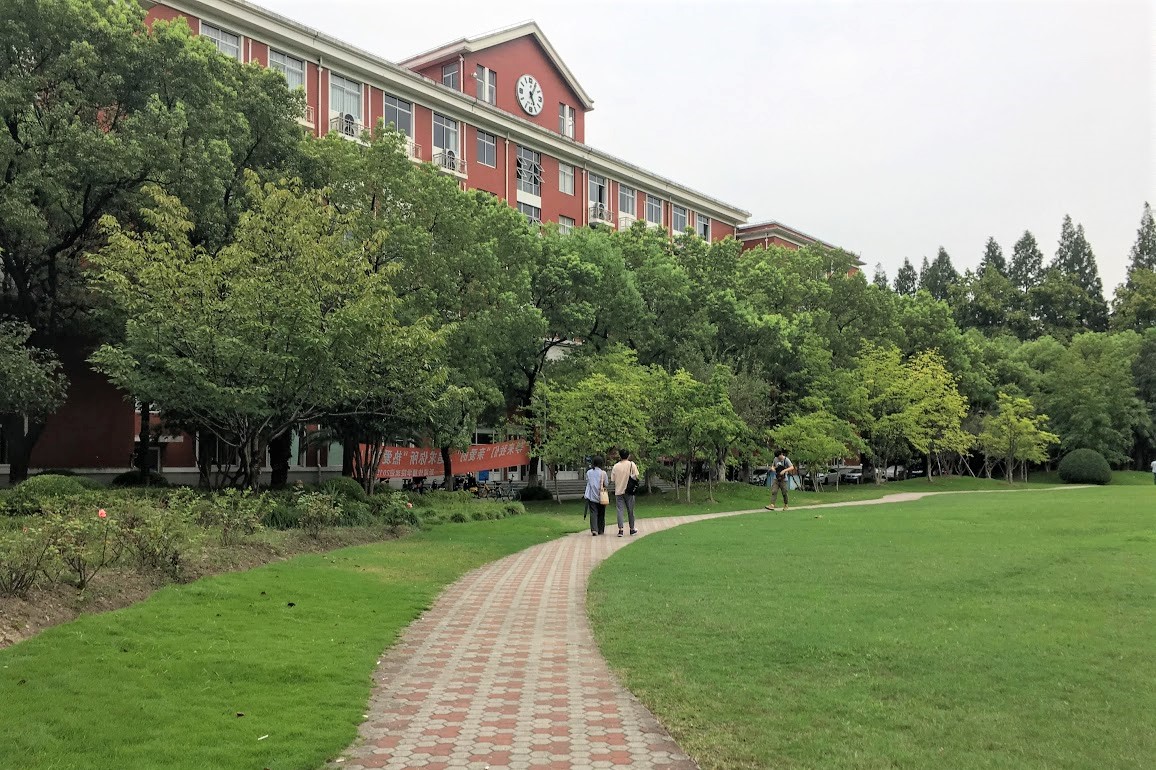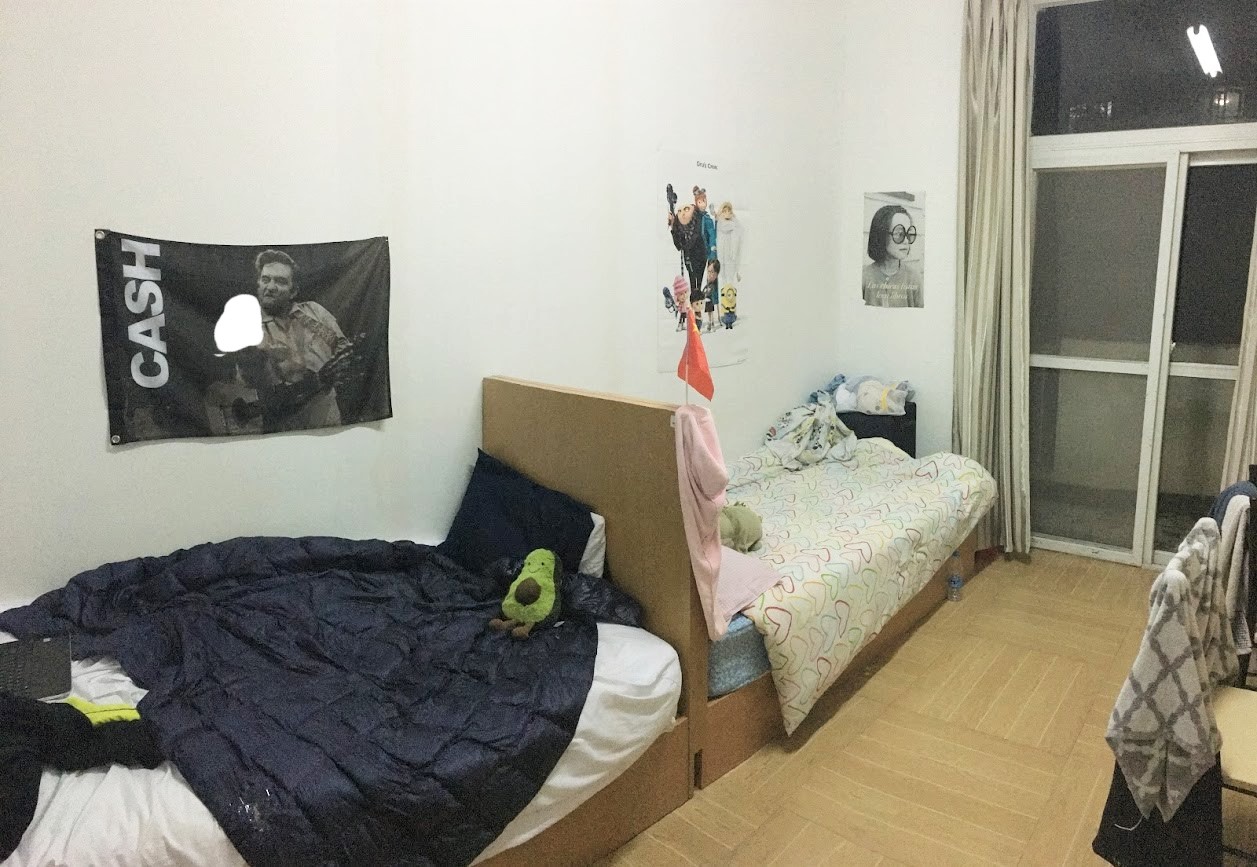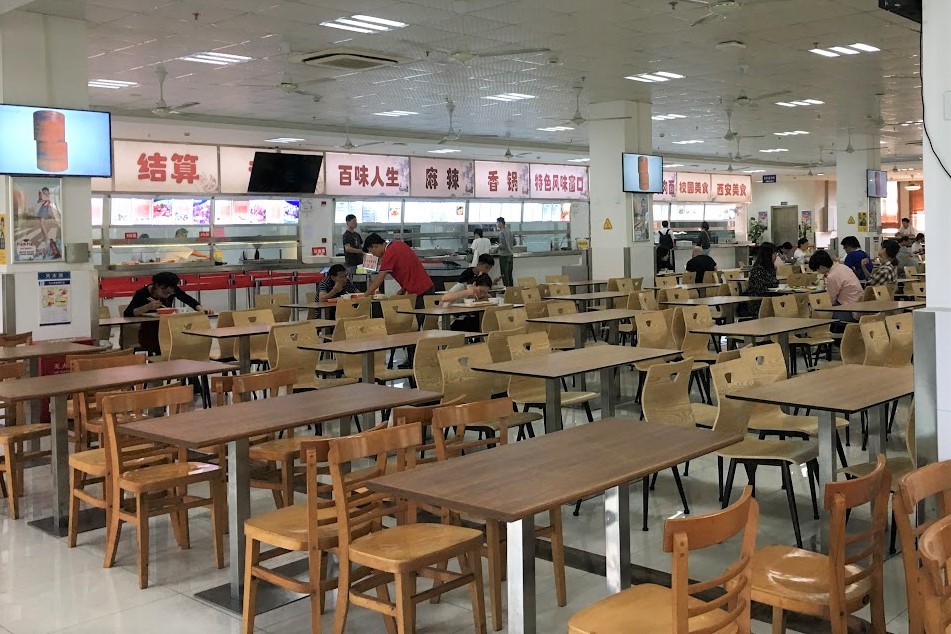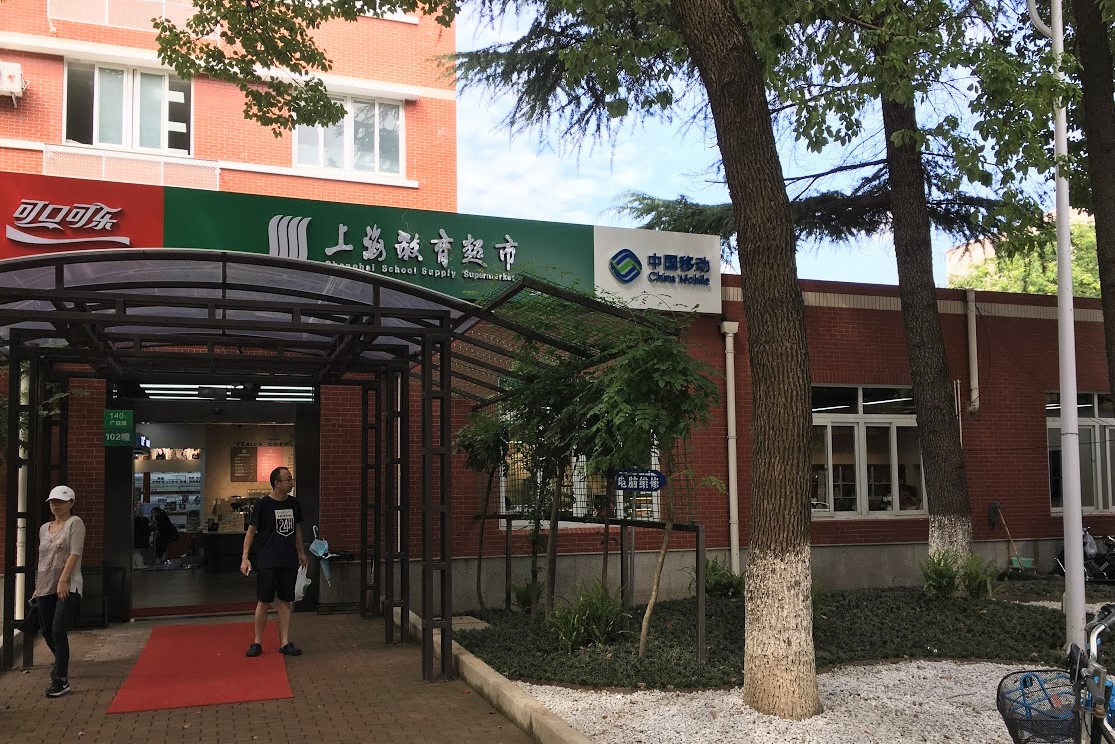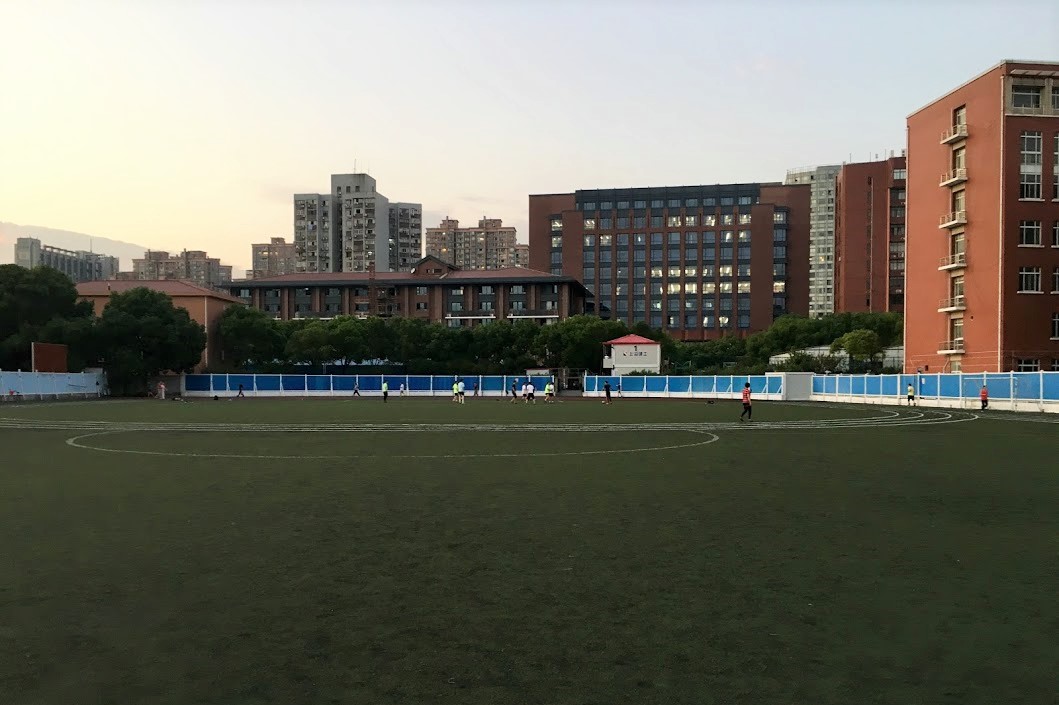Leading up to my time in Shanghai, I knew little of what to expect. I couldn’t find many pictures of the campus online and information seemed limited, but this has made my experience exciting and everyday offers something unexpected. Now that I am one month into my program, I want to share the 5 most important aspects of student life at Shanghai University and tips along the way! There is beauty in the unknown, but also no harm in some friendly tips.
1. Housing Accommodations
For ISEP students, there are several options for housing accommodation. There are two international dorms, one with single rooms, one with double rooms, and if you are brave enough, many international students find apartments off-campus. Where you will feel most comfortable will depend on your personality (and budget).
Before I talk about the actual rooms, here are some of my biggest tips: Give your parents a heads-up that you will not have WiFi for the first few days- you get the login information at orientation after you get your student ID and can also purchase a SIM card. I recommend waiting until orientation because they are very inexpensive! Also plan to bring your own sheets and towel- but don’t worry if you run out of room, these things are inexpensive in China.
Double Rooms
I live in a double room and really enjoy the comradery. There are two sides of the dorm building, both with six floors. Each floor has two pods of four rooms which shares a bathroom; the bathrooms have three stalls, two showers, and four sinks- no need to worry about space! The rooms are cozy, and even have a balcony which is great to let fresh air into your room and hang your clothes to dry; the pods each have their own fridge and microwave as well. Every room also has air conditioning which is very necessary in the warmer and humid months. The bathrooms are cleaned every morning, so no need to worry about messy roommates! On the main floor there is a laundry room, filtered/boiling water station, and even a place to have your sheets washed every ten days! The dorm is in the same area as the dorms for Chinese students and right next to the cafeteria, coffee shop, and supermarket.
I would recommend the double rooms because you create immediate connections; I also made a request during my application process to not have an American roommate. I wanted to make sure that my study abroad experience was unique and different than my life at home, and it has been great making friends from all over the world. The double rooms are also the most inexpensive option; my room fees were 900 USD for the entire semester (which is way more inexpensive than my rent at home).
Single Rooms
This is a great option if you really value your personal space and don’t mind the alone time. You will need to go out of your way more often to meet other students, but this isn’t too difficult with classes and events for international students. The single rooms are very spacious and have their own private bathrooms. The building offers the same accommodations (kitchen, water, and laundry on the main floor) as the double dorm, but is twice the cost of a spot in a double room.
Off-Campus
If you really want to experience life in Shanghai, or are studying longer than one semester, this is a great option. There are many ways to find apartments and roommates online, but it may be difficult to find a lease for only three months if your program is one semester. The cost of your rent will obviously depend on the number of roommates you have, the location, and how nice of an apartment you want to live in. Asia Exchange, ISEP’s partner for the Shanghai University program, will give you more tips and websites to find accommodations.
2. Meals (On Campus)
The Canteen
The canteen on campus is a quick and convenient place to eat between classes or if you just don’t want to leave campus. There are many high-quality, inexpensive options. This is also a great place to try different foods and even meet Chinese students. There are two floors and so many dishes to choose from! You have to be a little brave when eating here the first few times because most of the English translations don’t make any sense-one is translated as “secret chicken platoon package.”
Tip: If you don’t know any Chinese the first few weeks, take pictures of the menu and show them when you’re ordering because the employees don’t usually know English.
The Market
The on-campus market is another great way to grab a snack, school supplies, or small things you may need for your room! There is a coffee shop as well where many students study or just hang out and enjoy a latte. As a coffee addict, I can attest to the quality and very low price! The baristas are also extremely friendly and kind (as most Chinese people are).
3. Classes
There are many classes for international students to choose from; the most difficult adjustment for me has been getting used to being in class for four hours. This means you only have each class once per week, but it is very different than my home university in the U.S. The professors usually give breaks, but if you have multiple classes in one day, there is a chance you will be in class for 8+ hours.
Many of the classes offered are business courses, for example, Introduction to the Chinese Economy and China’s Evolving Financial System. The rest focus on culture; some popular ones this semester are China and Globalization and Chinese culture. There are also beginner and intermediate Chinese language courses.
The course grades are based almost entirely on attendance and one final exam or paper. There are limited assignments, but you are expected to always attend class (with exceptions for illness, etc.) and participate in class discussions. Professors are eager to hear students’ opinions and truly value what we have to say. Plus, this is a great opportunity to hear perspectives from people all over the world. Outside of class you can expect to prepare one group presentation in most courses and Chinese language courses require a decent amount of study time, but there may not be as much homework as you are accustomed to, especially if you’re from the U.S.
Some classes are taught in the Xingjian Building on the Yanchang campus; the classroom is on the ninth floor so there is a great view if you’re ever bored in class or want to see the outside world during breaks!
Tips:
- If you are wanting to learn Chinese relatively quickly, the beginner course has been great for communicating with locals and recognizing basic characters! You will have a little over eight hours of Chinese class per week, homework, and of course unlimited places to practice.
- In the Xingjian building there is a restroom on the ninth floor, but always carry tissue and hand sanitizer or soap to class- most restrooms will not have either.
4. Off-Campus
Yanchang Road is your go-to for just about anything. There are plenty of places to eat or grab coffee, pharmacies, clothing shops, shoe shops, fruit stands, and convenience stores. There are also several bus stations and the metro station is a five minute walk from the dorms.
Tip: Make sure you find the RT Mart a few blocks away- I recommend this for your first shopping trip in Shanghai because they have just about anything you could need and then some! Plus, there are plenty of familiar brands and occasionally something written in English.
5. Free-Time
Go for a run on the track, play a pick-up game of football, or enjoy time with friends on the lawn. There is plenty to do on-campus if you need to fill your time or are usually very active. In the evenings there are a lot of local Chinese walking, jogging, and playing badminton! There is no gym on Yanchang campus (where a lot of international students study), but Baoshan campus is a short bus ride away where there are even more student facilities.
Like this Story? Also like us on Facebook.
